Fritextsökning
Artiklar per år
Innehållstyper
-
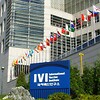
Now it’s settled: The International Vaccine Institute will be located in Stockholm
The International Vaccine Institute, IVI, is establishing itself outside South Korea for the first time. Last week, the Swedish Parliament ratified the agreement, which means that a branch of the institute will be located in Stockholm.
-
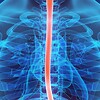
The first pharmaceutical for eosinophilic esophagitis approved in the U.S.
The U.S. Drug Administration has approved the drug Dupixent (dupilumab) to treat inflammation of the oesophagus of the type eosinophil esophagitis.
-

No demand for new Covid vaccine – “It will probably be discarded”
So far, just under 6 000 doses of the Covid vaccine from Novavax have been used in Sweden, leaving over 1.4 million doses in stock. “They will probably be discarded due to lack of demand in Sweden as well as globally,” says Sweden’s National Vaccine Coordinator Richard Bergström to Life Science Sweden.
-
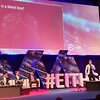
Start-up developing ”digital twin” received award during the EIT Health Summit
A biotech company, a medtech company and a company in digital health were on the podium when the EIT Health Catapult awarded its winners.
-
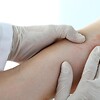
Alzecure får godkänt för fas II-studie mot nervsmärta
Bolaget räknar med att studien, som ska utvärdera smärtstillande effekter hos patienter med perifer neuropatisk smärta, ska starta inom kort och att resultat kan presenteras nästa år.
-

Anna Törner: To kill your darlings
Hopes were high when Anna Törner and her colleague started a study on a dietary supplement that seemed unbelievably good. “Enthusiastically, we dreamed of exciting results and perhaps a publication in a high-impact journal,” she writes in a column.
-
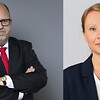
Utredning ska hitta vägar för att underlätta kliniska prövningar
Antalet kliniska läkemedelsprövningar som initierats av företag har minskat i Sverige de senaste 15 åren. Nu tillsätter regeringen en utredning för hitta sätt att vända utvecklingen.
-

Hello Angelica Loskog!
Life Science Sweden would like to know more about Angelica Loskog and interviews her about her life as a researcher.
-
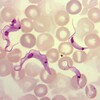
Noxious parasite forms hybrids and deceives the immune system
The small parasite Trypanosoma cruzi has a nasty ability to cause serious illness. Researchers at the Karolinska Institutet have now mapped its ability to deceive the immune system by forming new variants that are mixtures of different strains.
-

Investments worth 40 billion in the Öresund region – “A huge investment wave”
A new report reveals that medical companies in the Oresund region are investing like never before.
-
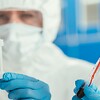
New rules for diagnostic products, but who will certify them? “An extreme shortage area”
In less than two weeks, new and stricter EU rules will enter into force for thousands of products used in important diagnoses of, among other things, cancer and Covid-19. However, not one single institute in the entire Nordic region is able to certify the diagnostics companies’ products according to the new regulations. “In the end, it risks affecting patients,” says Anna Lefèvre Skjöldebrand, CEO of Swedish Medtech.
-
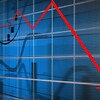
Roche backar efter svaga resultat i lungcancerstudie
Det schweiziska läkemedelsbolaget Roches aktie föll med omkring 7 procent på onsdagen, efter ett pressmeddelande där det meddelas att en läkemedelskandidat med högt ställda förväntningar gett undermåligt resultat i en studie med lungcancerpatienter.
-
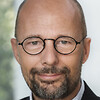
Fas IIb-resultat för Rhovacs cancervaccin inlämnade: "Väntar med spänning"
Lundabolaget Rhovac har nu lämnat in alla data från sin fas IIb-studie i prostatacancer. Nu väntar analyser och en presentation av de primära resultaten i början juni.
-
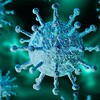
Studie beskriver hur coronavirus trivs på olika ytor
En ny studie från KTH ökar förståelsen av hur sars-cov-2 interagerar med olika ytor på molekylär nivå.
-
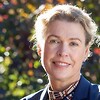
Anna Törner: To kill your darlings
Förhoppningarna var höga när Anna Törner och hennes kollega startade en studie om ett kosttillskott som verkade vara overkligt bra. "Entusiastiskt drömde vi om spännande resultat och kanske en publikation i en högimpakttidskrift", skriver Anna Törner.
-

Biogens motgångar stjälper över på svenska alzheimersföretag
Det amerikanska läkemedelsbolaget Biogens högprofilerade behandling mot Alzheimer, Aduhelm, spåddes bli en ny vår för såväl forskningsområdet som bolaget. Succén har dock uteblivit och nu avbryts praktiskt taget satsningen, samtidigt som vd Michael Vounatsos får gå.
-
EU: Ökad tillgång till hälsodata guldgruva för forskare
EU-kommissionen lade under tisdagen fram ett förslag som skulle innebära att hälsodata ska kunna användas bättre inom bland annat sjukvård och forskning.
-
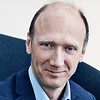
Tougher competition as the Novo Nordisk Foundation broadens its programme
Søren Nedergaard has worked with innovation at the Danish Government Offices and the University of Copenhagen. Today, he is COO of the Novo Nordisk Foundation, which has recently broadened its programme for leading innovators in medical research to apply to the entire Nordic region.
-
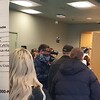
Paolo Macchiarini in court – “The sole intent was to cure”
Paolo Macchiarini’s surgical procedure was illegal, life-threatening and caused severe and prolonged suffering to patients the prosecution claimed when the trial against the Italian surgeon began on Wednesday last week.
-
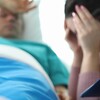
TLV: Anhörigas livskvalitet bör kunna ha betydelse vid beslut om subvention
Även anhörigas livskvalitet bör kunna beaktas när beslut tas om subventioner av läkemedel. Det menar Tandvårds- och läkemedelsförmånsverket, TLV.
-
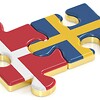
Sverige och Danmark i nytt samarbete om precisionsmedicin
Ett svenskt-danskt samarbete inleds inom precisionsmedicin när Genomic Medicine Sweden (GMS) och Danish National Genome Center (DNGC) ingår ett partnerskap.
-
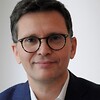
We will now publish more news in English – and offer yet another newsletter
Starting next week, Life Science Sweden will begin offering a newsletter entirely in English.
-
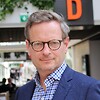
Björn Ursing: Det personliga mötet kräver kvalitet
"Jag hoppas att mötesindustrin tar till sig de nya trenderna och ger oss som vill träffas på riktigt valuta för resandet", skriver Björn Ursing, som hyllar de slumpartade mötena i matköer och på mingel.
-
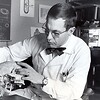
When carelessness, forgetfulness and coincidence become the researcher’s best friend
Forgetfulness, coincidence and a stroke of luck hardly make up a fruitful method of serious research. Or do they? Actually, a number of important medical advances have come about thanks to completely random incidents and the open-mindedness of scientists who were ready to think outside the box.